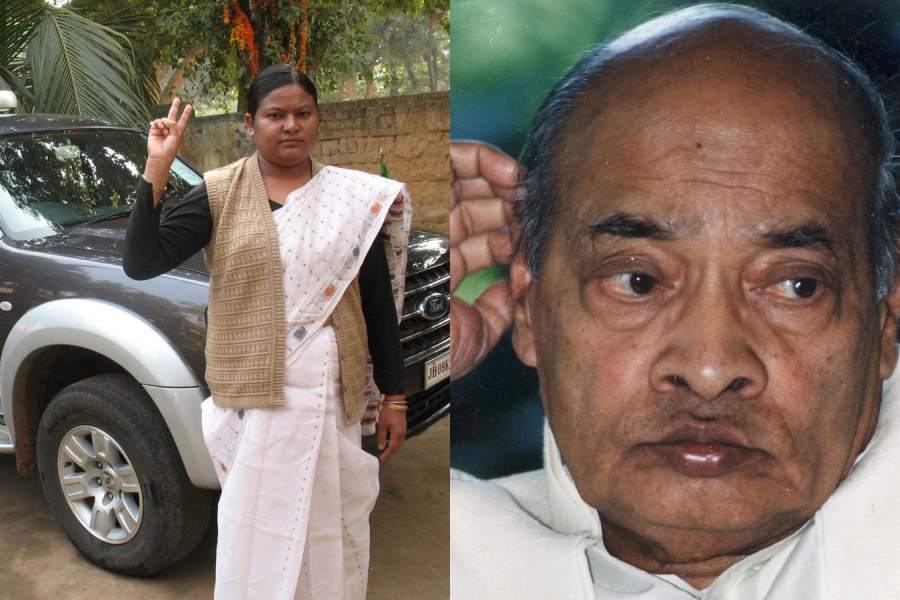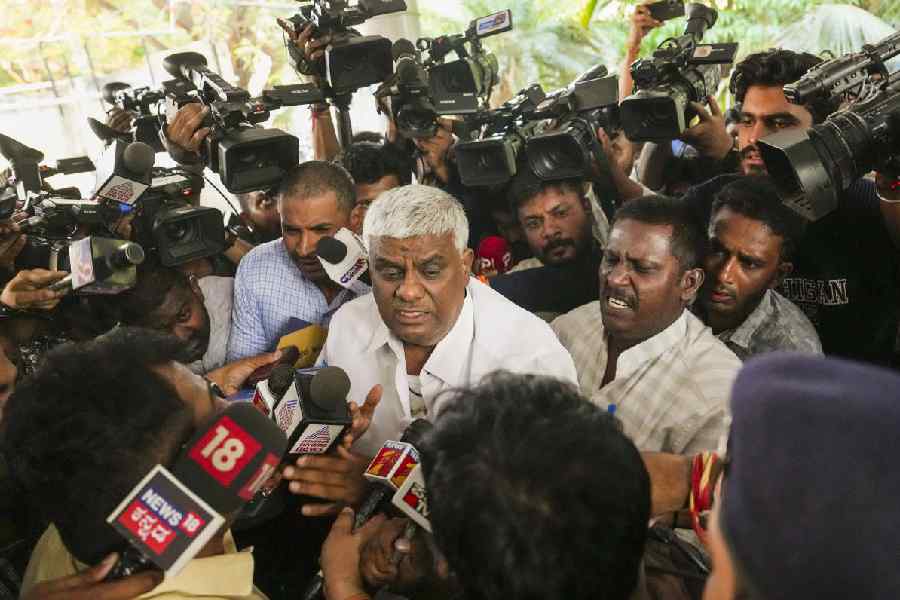Monday’s seven-judge apex court verdict that said lawmakers have no immunity from criminal prosecution on charges of accepting bribes to vote or speak in the House has its genesis in a decade-old judgment by Jharkhand High Court.
On February 17, 2014, the high court directed the prosecution of then JMM legislator Sita Soren for allegedly taking a bribe but not casting her vote in the House in the manner agreed with the bribe-giver.
The high court order was based on a five-judge constitution bench verdict in the P.V. Narasimha Rao vs State (CBI/SPE) case of 1998. That verdict entailed that a lawmaker can be prosecuted if they have taken a bribe but not voted or spoken as agreed in lieu of the bribe, but would enjoy immunity if they have voted or spoken as agreed with the bribe-giver.
Aggrieved, Soren appealed before the apex court where a five-judge bench last year referred to the seven-judge bench the correctness of the 1998 five-judge ruling.
Soren allegedly accepted a bribe to vote for an Independent candidate in the 2012 Rajya Sabha elections but eventually voted for her own party's nominee, following which the CBI proceeded against her under the Prevention of Corruption Act.
Soren petitioned the high court to quash the chargesheet and the criminal proceedings, citing the 1998 judgment to claim protection under Article 194(2) of the Constitution.
The high court declined to quash the criminal proceedings on the ground that Soren had not voted in favour of the alleged bribe giver and was therefore not entitled to protection under Article 194(2).
The Rao case stemmed from the 1991 general election, which threw up the Congress as the largest single party and enabled the formation of a minority government headed by Rao.
A no-confidence motion against the government was defeated 265-251, with a group of MPs from the JMM and the Janata Dal (Ajit Singh) voting against the motion. Ajit himself abstained from voting.
A complaint was filed before the CBI alleging a criminal conspiracy under which certain JMM and JDAS members received bribes to vote against the no-confidence motion.
It was alleged that Rao and several other MPs were party to the conspiracy and had passed on "several lakhs of rupees" to the alleged bribe-takers.
A prosecution was launched against the alleged bribe-givers and bribe-takers, with cognisance taken by a special judge in Delhi. The accused petitioned Delhi High Court to quash the charges. The high court dismissed the pleas.
The accused MPs then appealed before the apex court, which passed the 1998 verdict by a 3:2 majority.
The majority view, expressed by then Chief Justice S.P. Bharucha and Justices S. Rajendra Babu and G.N. Ray, said the alleged bribe-takers who cast their vote against the no-confidence motion enjoyed immunity from prosecution under Article 105(2).
However, Ajit, who had abstained from voting despite the alleged bribery, and the alleged bribe-givers were liable for prosecution, it said.
It added that Parliament may proceed against both the alleged bribe-takers and bribe-givers for the breach of parliamentary privileges and contempt.
The minority view of Justices S.C. Agarwal and A.S. Anand, which held that the MPs enjoyed no immunity from criminal prosecution, was on Monday upheld by the seven-judge bench in a unanimous verdict.










